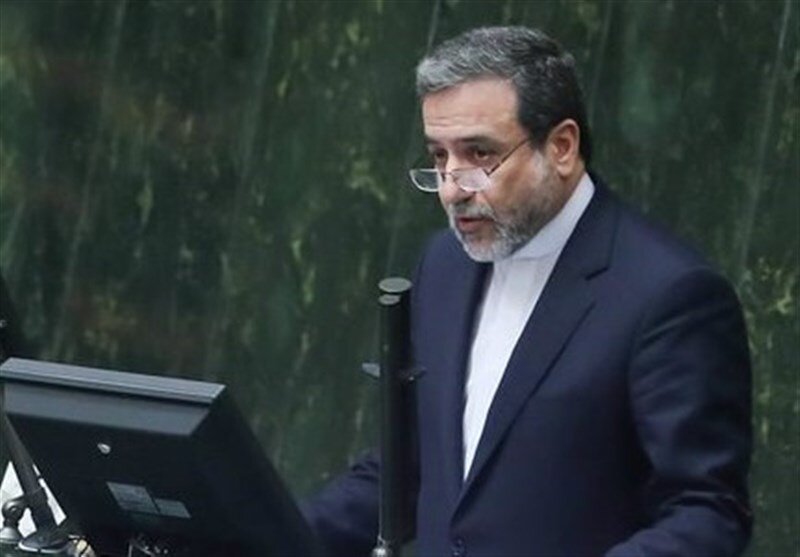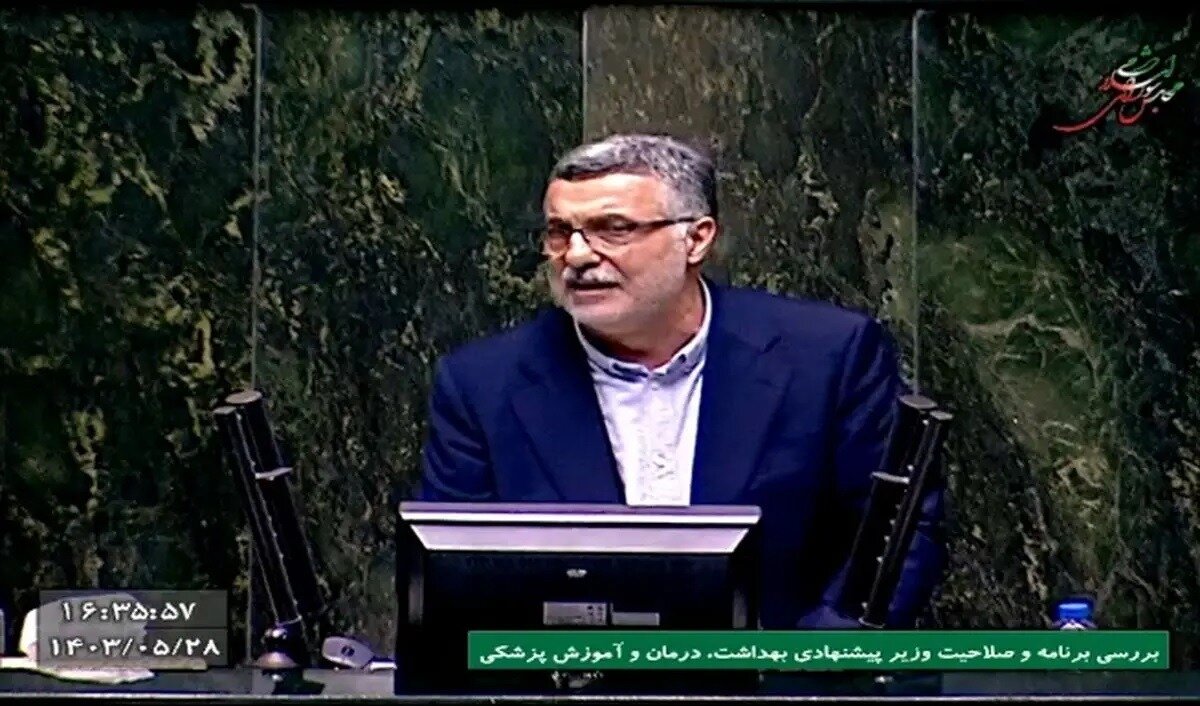Araqchi maps out diplomatic plans if confirmed as Iran’s foreign minister

TEHRAN – Abbas Araqchi, the figure proposed by President Masoud Pezeshkian to become Iran’s top diplomat, says he would focus on the “neutralization of sanctions” through “honorable means” if he receives a vote of confidence from the conservative majority parliament.
Araqchi, an experienced diplomat associated with Iran's reformist camp, presented his foreign policy agenda on Sunday while speaking to a gathering of lawmakers whose majority support is essential for his appointment as the country's foreign minister.
"The Leader of the Islamic Revolution has explicitly said that our priority is to neutralize sanctions," Araqchi stated, underscoring a dual focus on diplomatic engagement and the preservation of national dignity.
He further assured that any efforts to end the sanctions would be approached with dignity, emphasizing collaboration with Parliament. "There will be no haste nor will we fall into protracted negotiations," he said, indicating a cautious yet determined approach to diplomacy moving forward.
Reflecting on efforts to revive the Joint Comprehensive Plan of Action (JCPOA), Araqchi noted, "When the current U.S. President Mr. Biden took office and requested that the U.S. return to the JCPOA, the system's decision was to respond to this request while maintaining firm positions." He recalled his previous involvement in these negotiations, asserting that the discussions adhered to the strategic directives set forth by the Iranian leadership.
Araqchi also reiterated strong support for the Resistance forces in West Asia, emphasizing unwavering backing for the Palestinian cause and other Resistance movements. "These issues will remain at the forefront of our agenda," he declared.
In his remarks, Araqchi highlighted the importance of leveraging Iran's political and diplomatic capabilities to advance the "goals of the Axis of Resistance" on the world stage. He expressed a commitment to enhancing regional cooperation and securing international recognition for these movements.
Discussing regional diplomacy, he asserted that a policy of good neighborliness would be vigorously pursued, transforming political and economic opportunities in neighboring nations into tangible benefits. He also emphasized the significance of partnerships with countries like China and Russia, stating, "Emerging powers and new arenas in Africa, Latin America, and East Asia will be prioritized in our foreign relations."
Regarding relations with Europe, Araqchi conveyed a willingness to engage, provided European nations correct their "wrongful and hostile behaviors" toward Iran. Addressing Iran's position on the United States, he explained that the country's approach would focus on the “management of conflict,” not its "removal."
While Araqchi is a well-respected diplomat among his peers and analysts, he may face difficulty gaining the support of the conservative-majority parliament. Some lawmakers who used to be active in Pezeshkian’s defeated rivals’ presidential campaigns have expressed strong opposition to Araqchi and his past tenures in the foreign ministry, specifically his role in leading the talks that led to the inking of the JCPOA.
‘Intelligence forces in 53 countries targeting Iran’
Another proposed minister to speak to lawmakers on Sunday was Esmail Khatib, the proposed intelligence minister who has been serving the role for the past three years. Khatib faced significantly less opposition compared to Araqchi. That enabled the official to dedicate most of his time at the podium to making warnings about the security threats Iran is facing.

“The intelligence services of 53 countries have designated sections focused on Iran” he stated, highlighting that many acts of sabotage are carried out with the involvement of various actors.
He emphasized that the Ministry of Intelligence has recently thwarted several enemy plots through a series of anti-terrorist and counter-intelligence operations. "We have nullified some of these plots," he asserted, underscoring the ministry's proactive measures.
Khatib pointed out that the confrontation between the enemies and the Islamic Republic has persisted since the victory of the revolution. He noted, "Today, the foes have put hybrid warfare on their agenda, using cognitive warfare to weaken the structure of the Islamic system."
He elaborated on the challenges faced by Iran, stating, "On the one hand, our country is situated in a region rife with numerous wars and tensions, including the emergence of Takfiri terrorism under the name of Daesh. On the other hand, we contend with the state-sponsored terrorism of the Zionist regime, which resorts to the most brutal racist acts and the massacre of innocent people before the world."
Khatib also highlighted the Ministry's efforts to harness emerging technologies, noting that advancements in areas such as artificial intelligence and cognitive sciences have significantly enhanced intelligence operations. "These developments in information collection and analysis have enabled the Islamic Republic of Iran to achieve great progress in this respect," he stated.
Zafarqandi says long medical career helps him understand what staff and patients need
The president’s proposed ministers of interior and health also faced parliament’s scrutiny on Sunday.
Mohammad Reza Zafarqandi pledged to ensure that the Iranian people endure no suffering beyond the pain of illness if he is approved as the health minister. "Today, I am ready to use all my strength, capacity, experience, and the broad support of the health community in the country to ensure that people endure no suffering other than the pain of illness," he stated.

He emphasized the critical nature of his role, saying, "I have come to enter a critical management arena that is connected to human lives." Drawing from his four decades of experience in healthcare, he acknowledged the ongoing challenges faced by citizens despite advancements in medical services. "As a doctor, I have learned to support the people who, despite all the advancements made in health, still face serious shortages and limitations in some areas of the country," he remarked.
Reflecting on his extensive background, Zafarqandi noted, "For 40 years, I have lived among my colleagues and have been in contact with healthcare and treatment staff." He likened accepting responsibility in the current climate to being part of emergency teams during wartime, emphasizing the need for self-sacrifice and dedication to serving the nation.
Addressing the ongoing crises and challenges posed by international sanctions, he stated, "The country is grappling with various crises and facing unjust sanctions and financial limitations. In these circumstances, we must utilize all available capacities." He also highlighted a pressing issue: "We are currently facing a problem called the migration of healthcare personnel, which imposes significant costs."
Zafarqandi didn’t shy away from discussing broader regional issues, mentioning the recent conflict in Gaza. "One of the crises is the unjust 300-day assault by the Zionist regime on the oppressed people of Gaza, resulting in the martyrdom of over 40,000 individuals," he said.
In closing, he reiterated his commitment to enhancing the health sector and reducing suffering among the populace. "The government's duty is to gain the satisfaction of the people, and the health sector is one of the most important pillars for achieving this satisfaction. I have come to dedicate all my efforts, strength, experience, and determination to enhance the health sector," Zafarqandi concluded.
Pezeshkian presented his cabinet nominations to Parliament on August 11, just under two weeks after his inauguration before his former colleagues. It will take several days until voting concludes on who will be allowed to take each ministerial position.
Noteworthy highlights from the proposed cabinet include an average age of under 60 years, with the youngest minister born in 1976 and the oldest in 1957. A woman has been nominated for a ministerial position after over 13 years. Additionally, 14 out of the 19 individuals presented are stepping into ministerial roles for the first time, bringing fresh perspectives to governance unity and collaboration among the three branches of government to address the nation's challenges.
Leave a Comment